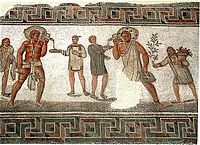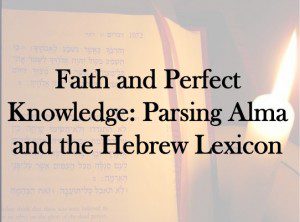1 John opens reminiscent of both the Gospel of John (thematically) and Luke/Acts (in contrast). That is, the vocabulary and ideas resemble John (the Word of life made visible, eternal life). But the point-of-view contrasts Luke. Whereas Luke says he had to investigate and talk to witness, because he wasn’t a firsthand eyewitness himself, 1Jo 1:1 and 1Jo 1:3 strongly imply the opposite for the author (authors?) of 1 John. Note the plural “we” there, present from the first verses onwards. Is this a... Read more
















